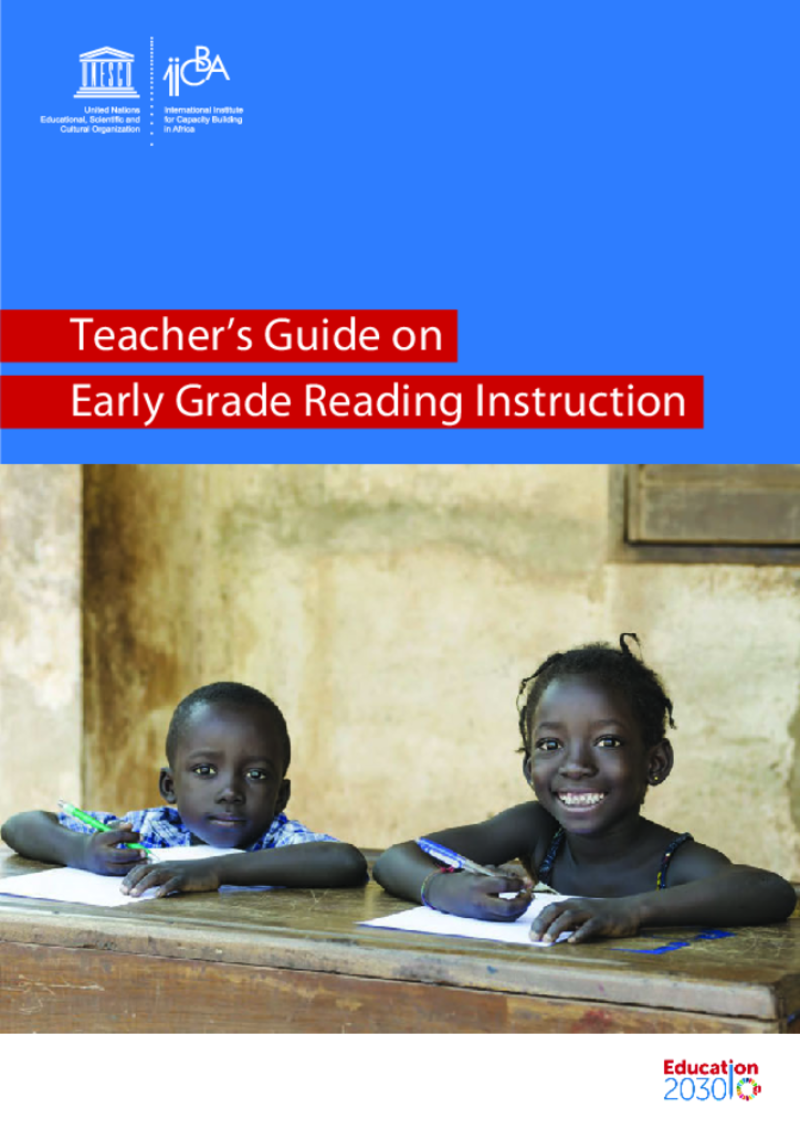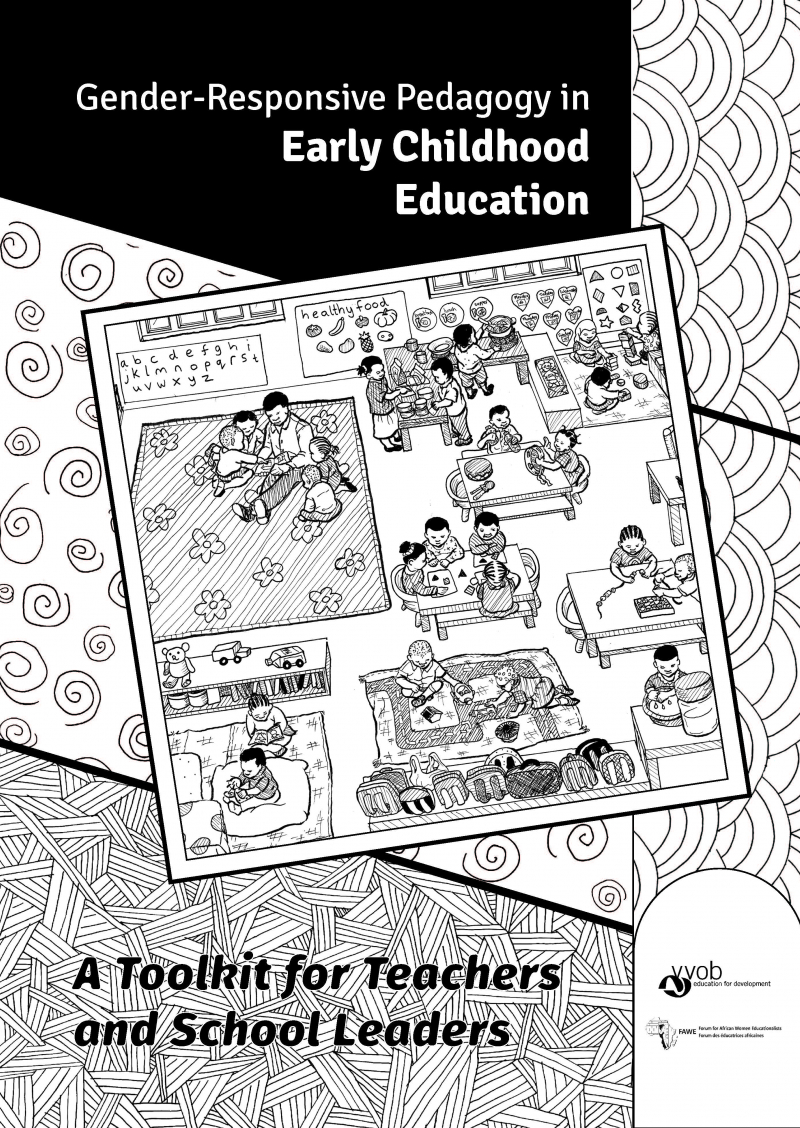Teacher Resource Centre
Displaying 1 - 8 of 8
Play & resilience: a toolkit for teachers, caregivers, and other stakeholders
Play is an easy, natural and universal practice that builds resilience. Play comes naturally to all children- and is a seemingly simple and light-hearted phenomenon. The power of play as a pathway to building resilience needs to be leveraged to provide children with the opportunity to further explore play in their home and school environments.
This toolkit is therefore premised on the objectives to build the capacity of various stakeholders such as caregivers/teachers, school managers, curriculum planners and policy makers who are key actors in the process of growth and development of children. It is also aimed at equipping these stakeholders with the knowledge and pedagogical skills to translate research, policy and curriculum to practical knowledge and activities for children in the school environment. The toolkit offers directions for facilitators who will be working with caregivers/teachers using the materials and resources provided and other relevant materials available in an environment where it will be used.
Teacher's guide on early grade reading instruction
Reading is a fundamental ability for all other learning activities. Students can learn only when they comprehend, and this requires appropriate reading skills in the first place. Appropriate reading skills support the learning of increasing amounts of instructional content. This is why children who fail to learn to read during their early years of schooling will encounter more difficulties in later grades and a higher risk of drop out. Quality early grade reading instruction is critical in preventing these challenges and risks as well as in protecting children’s rights to education and ensuring better chances of success in their life.
Teachers are at the center of reading instruction and they need to be trained with pedagogical knowledge and management skills in order to provide students relevant and quality instruction. It has however been noted that teachers in many countries, especially low-income countries in sub-Saharan Africa, lack the proper training and support on ways of teaching early grade reading to their students. Therefore, a comprehensive and practical guide on early grade reading is highly needed to bridge this gap.
This guide aims to empower teachers in Africa by equipping them with the knowledge and skills of early grade reading, including the simple identification of the main pillars of reading, lesson planning and classroom management, taking into account the context in Africa. Subsequently, these teachers will help their students build basic reading skills in their early years of schooling.
A Teacher's Guide for Arts, Music and Drama in Africa
Art, music and drama have had a pivotal role in the livelihood of human beings. This is clear by the wealth of literature, architecture, fine art, theater and music that define human past, present and future. The inherent creative ability and a yearning to express ourselves is what gives value to art, music and drama as companion components in human evolution.
This teacher's guide covers art, music, dance, drama, experiential learning, community engagement, and how to integrate these aspects into curriculum. Additionally, this document provides lesson plans for primary school students in these subject areas.
Active Teaching and Learning Manual
The Active Teaching and Learning booklet presents the principles and practices of learner centered pedagogy as a teaching approach to achieve quality education. It is accompanied by cards on methods, techniques and tools, which provide teachers with examples and tips for classroom implementation. The booklet was developed by the Teacher Instructor Education Training department of the Ministry of Education, Science Technology and Sports of Uganda, with support from the Belgian Development Agency, in the framework of the Teacher Training and Education project.
How to use ICT tools in teaching and learning
This booklet presents a selection of ICT tools to integrate into teacher training in Uganda. Every tool is accompanied with creative ideas and suggestions on how to engage learners and enrich lessons.
General teaching methods
This course aims to get the best out of the teaching practices from pre-service teachers, in-service teachers and anyone who is eager to contribute to quality education. It has been written by the Teacher Training Education Project, implemented by Enabel and the Ministry of Education and Sports in Uganda.
Gender-responsive pedagogy in early childhood education. A toolkit for teachers and school leaders
The toolkit offers an introduction to gender-responsive pedagogy in early childhood education and serves as a practical guide that can be adapted to any context and the related needs. It provides teachers at early education practical tips to ensure they are able to offer children a learning environment that is free of prejudice and stereotypes. It is a source of ideas that individual teachers and school leaders can put to immediate use in their classrooms and schools. The toolkit was pre-trialled in three countries: Rwanda, South Africa and Zambia, and it can be contextualised for implementation in different African countries.
Youth empowerment for peace and resilience building and prevention of violent extremism in Sahel and surrounding countries: a guide for teachers
This guide is designed to build the capacity of secondary school teachers and teacher educators to integrate a peace and resilience building approach in education for the prevention of violent extremism. It builds on the Transformative Pedagogy for Peace-building guide and it was contextualized to the context the Sahel and surrounding countries.
The guide redefines the role of teachers, inviting them to make a paradigm shift in adopting a transformative pedagogy that allows learners to actively participate in their own learning. Transformative pedagogy builds on active pedagogy and the competencies-based approach. The guide concludes with engaging learning activities to support experiential learning.





